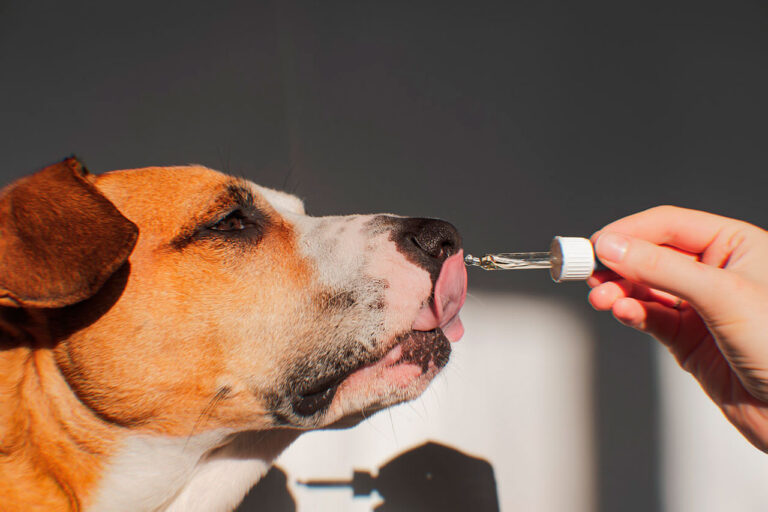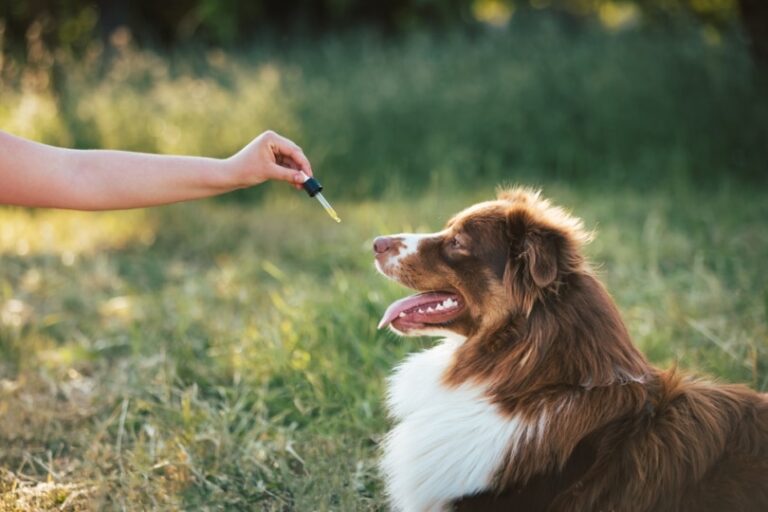Signs Your Dog Might Benefit from CBD
Introduction
As pet owners, we want nothing more than to see our dogs happy, healthy, and comfortable. But just like humans, dogs can experience a wide range of physical and emotional issues—from chronic pain and joint stiffness to anxiety and digestive problems. That’s why many pet parents are now turning to CBD as a natural supplement to support their dogs’ overall well-being.
But how do you know if your dog might benefit from CBD? In this blog, we’ll explore the most common signs that your furry friend could be a good candidate for cannabidiol, along with how it works and what to watch for.
What Is CBD and How Does It Work for Dogs?

CBD, or cannabidiol, is a non-psychoactive compound found in the hemp plant. It interacts with the endocannabinoid system (ECS)—a regulatory system present in all mammals, including dogs. The ECS plays a key role in maintaining balance in functions like pain response, mood, immune activity, digestion, and sleep.
When introduced to your dog’s body, CBD may help restore balance, reduce inflammation, calm anxiety, and provide relief from discomfort without the “high” associated with THC.
1. Your Dog Seems More Anxious or Nervous Than Usual
Separation anxiety, fear of thunderstorms or fireworks, and stress from travel or changes in environment are common in dogs. If your pup exhibits symptoms like pacing, excessive barking, trembling, or destructive behavior when left alone, CBD may help. It’s known to have calming effects on the nervous system and can promote relaxation without sedation.
2. They’re Struggling with Joint Pain or Mobility Issues
Is your dog limping, reluctant to go up stairs, or slower on walks? These can be signs of arthritis or joint inflammation—especially in older dogs. CBD has been shown to have anti-inflammatory and pain-relieving properties, which can support joint health and improve mobility. Many pet owners report their dogs showing renewed energy and comfort after regular use.
3. They Have Frequent Digestive Upsets
Chronic diarrhea, nausea, loss of appetite, or vomiting may point to digestive or gut health issues. CBD interacts with receptors in the digestive system and may help soothe inflammation, reduce nausea, and stimulate appetite. If your vet has ruled out serious underlying conditions, CBD might be a supportive option.
4. Your Dog Is Getting Older and Slowing Down
Aging dogs often face a mix of physical and cognitive changes, including pain, stiffness, anxiety, and even canine cognitive dysfunction (similar to dementia in humans). CBD’s potential neuroprotective and anti-inflammatory properties make it a great natural tool for senior dog wellness—supporting both mental clarity and physical comfort.
5. They Have Trouble Sleeping or Resting
If your dog seems restless at night, wakes up frequently, or struggles to find a comfortable position, they may be experiencing discomfort or anxiety. CBD’s relaxing effects may help your dog settle down and get more restorative rest—something essential for healing and mood regulation.
6. They’re Recovering from Surgery or Injury
CBD may support healing and reduce inflammation after surgery or injury. While it’s not a replacement for prescribed medications, it can be used as a complementary therapy (with your vet’s approval) to help manage pain and promote recovery.
7. Your Dog Has Skin Allergies or Irritations
Skin conditions in dogs—like allergies, hot spots, or itching—can be uncomfortable and tough to manage. CBD has anti-inflammatory and soothing properties that may help reduce irritation when taken orally or applied topically (in creams or balms). It’s especially helpful when the root cause is inflammation or immune overactivity.
Is CBD Safe for Dogs?
Yes, CBD is generally considered safe for dogs when used appropriately. It’s important to choose high-quality, THC-free CBD products that are specifically formulated for pets. Start with a low dose and gradually increase as needed, always observing your dog’s response. Mild side effects, if any, may include drowsiness or dry mouth.
Before starting any supplement, it’s wise to consult your veterinarian, especially if your dog is on medication or has underlying health conditions.
Also Read: CBD Oil for Dogs vs. Cats: Key Differences and Considerations
Final Thoughts
If your dog is showing signs of anxiety, pain, digestive upset, or aging-related issues, CBD might offer a gentle, natural way to support their comfort and quality of life. As with any wellness product, results can vary, and it’s important to take a patient, consistent approach.
From tail wags to better sleep, many pet owners are discovering how CBD can enhance their dog’s daily health. If you think your dog may benefit, start slow, observe their progress, and always prioritize products made with pet-safe, high-quality CBD.







